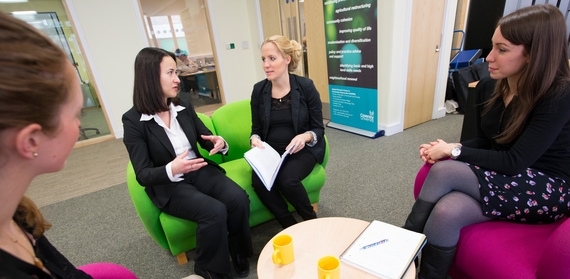Dr Carlos Ferreira introduces the latest projects from the Centre for Trust and Ethical Behaviour (CETEB).
There is nothing new about saying that businesses have duties that go beyond maximising shareholder value. The notion that firms have a Corporate Social Responsibility (CSR) has been consistently advanced by the British government, the European Union, NGOs and corporate leaders themselves. And while firms have accepted the need to behave as responsible (corporate) citizens, how to do it is often fraught with difficulties and challenges; many try, few succeed, especially in an environment in which consumers are alert, strongly connected, and swift to punish even the more trusted brands. Firms need to demonstrate ethical business practices.
It is in this context that research on business ethics has gained momentum within the Faculty of Business, Environment and Society. An expanding group of researchers within the Centre for Trust and Ethical Behaviour (CETEB) is researching business ethics, with the objective of building bridges between the challenges companies face in demonstrating their commitment to being responsible and consumers’ preferences, all the while producing high quality research, useful for industry and recognised by academic peers.
Many meanings of precious
One of the most recent projects CETEB is working on involves the UK market for fine jewellery. The jewellery industry has been involved in a long debate about the origin of the products it sells. In the last few years there have been important advances in tracing and identifying conflict minerals, especially after a number of high-profile cases put the issue under the spotlight. However, questions remain unanswered, even where best practice is concerned. This is complicated further by the structure of the Jewellery industry in Britain, which is mostly composed of Small and Medium Enterprises (SMEs), and by the fact that jewells tend to be luxury products if compared to food or energy. A large scale project under development by the group aims to understand both consumer attitudes towards CSR issues in fine jewellery, and the challenges and needs of fine jewellery SMEs. This should help both consumers and the industry to become more responsible.
Louder, noisier, more shocking? I didn’t see it.
Another CETEB project relates to how advertising in social media is consumed. As more and more companies use social media to reach consumers, there could be a tendency to produce controversial ads which are stronger, more brash and shocking, in an attempt to cut through the media noise. However, there is no evidence that this always works. Consumers come to social media with ethical values and preferences, and may easily be put off or offended by shocking advertising. Studying how consumers react to shocking ads and how far they will go to avoid them is not only important for academic purposes, but also for marketers looking to understand how consumers process marketing information on social media.
Biodiversity offsets: sustainability as if consumers mattered
A third project concerns biodiversity offsetting in the UK. Balancing out business interests and sustainability has long been a problem. One idea that has been gaining traction is that companies compensate for their impacts: if developing an area leads to negative impacts over nature, the company responsible must acquire a biodiversity offset, a compensation measure which demonstrates that the project results in No Net Loss of Biodiversity. But even as the British government considers making biodiversity offsetting compulsory, campaigners argue that the scheme may be used to override the planning process. Focusing on consumers, their opinions and their values, this project seeks to inform both businesses and policy-makers about the potential of this initiative, and what changes need to be made before the public accepts the ethical implication of biodiversity offsetting.
One core, many approaches
In developing these and other projects, the CETEB team create and implement different methodologies and approaches, engage various stakeholder groups, and look to problems in novel ways. In this way the CETEB team are positioning The Faculty of Business, Environment and Society at Coventry University at the forefront of research in the field of business and consumer ethics.




Comments are disabled